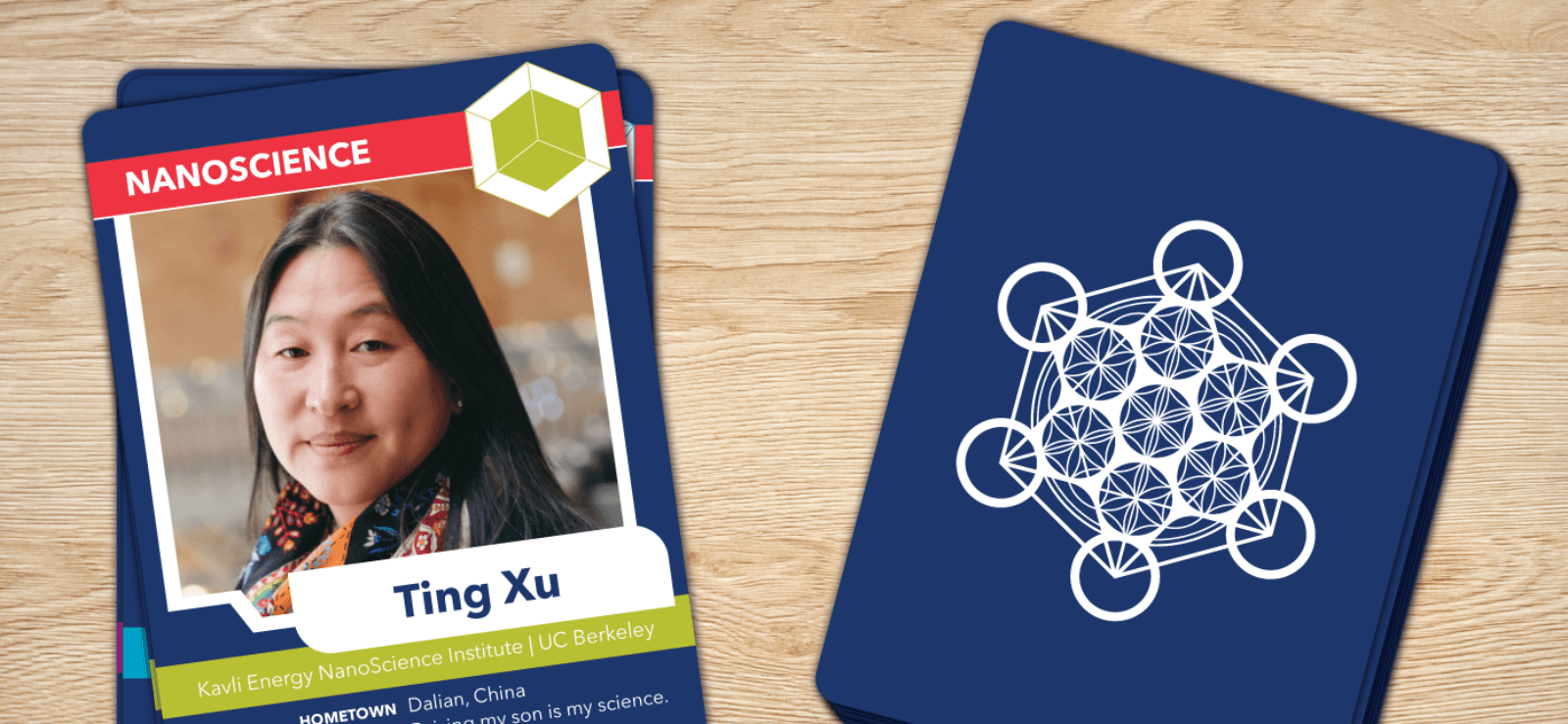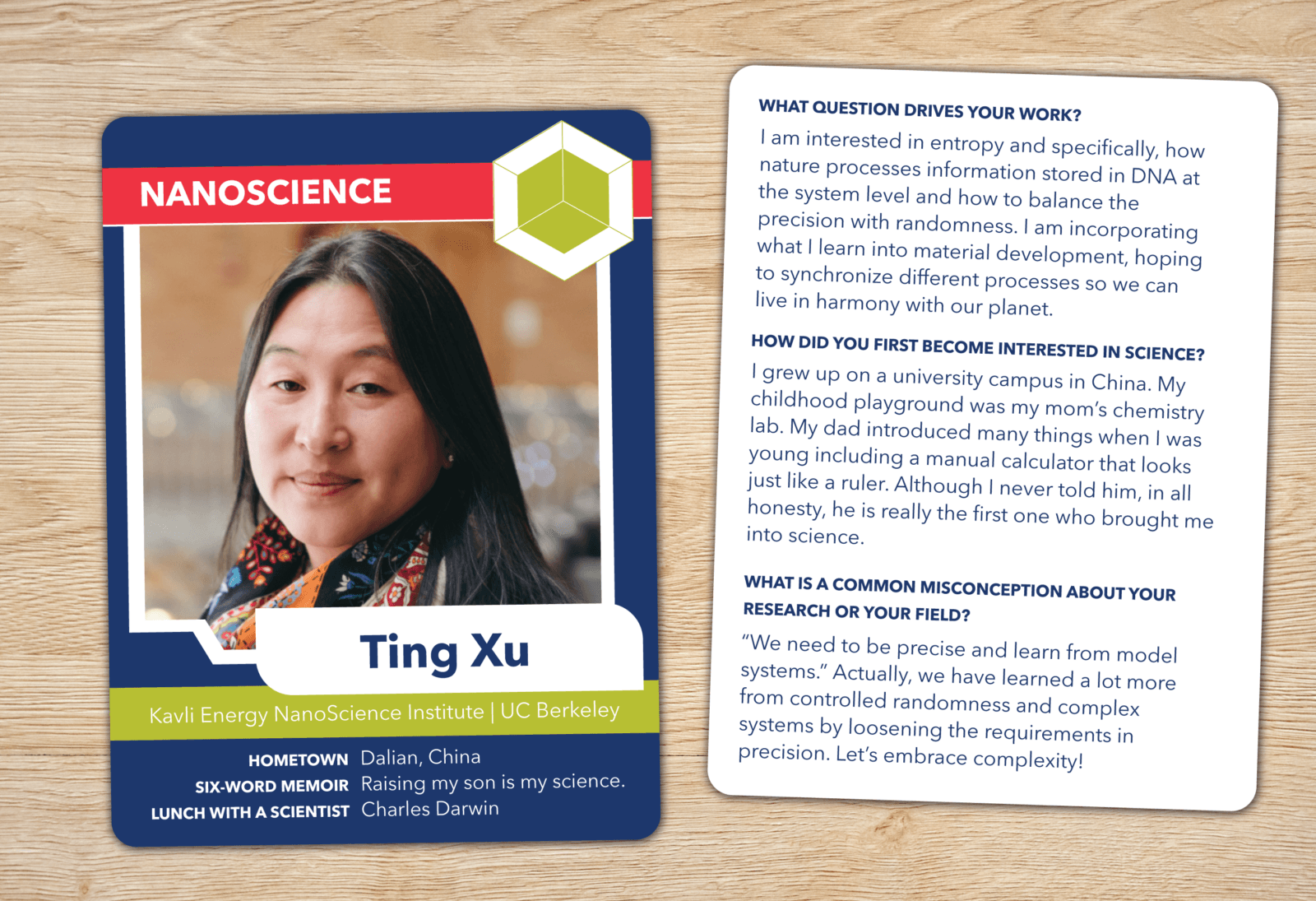Embracing Complexity
Q&A with Ting Xu, member of the Kavli Energy NanoScience Institute

The Researcher
QUICK FACTS
Hometown: Dalian, China
Favorite Movie or Book: Men in Black. I love how in the final scene the view zooms out from the street to the galaxy and our universe becomes a marble in an alien's game.
Your 6-word memoir: Raising my son is my science.
Most unusual job: Waitressing at a restaurant on a boat in the harbor. It gave me my first opportunity to interact to people from different regions and financial backgrounds. The experience really shaped who I am in many ways.
Hobbies: I love anything associated with the ocean, diving, snorkeling, surfing, fishing or just idling...

How did you first become interested in science? Who or what inspired you?
I grew up on a university campus in China. My childhood playground was my mom’s chemistry lab. My dad introduced many things when I was young including a manual calculator that looks just like a ruler. Although I never told him, in all honesty, he is really the first one who brought me into science.
What is the question that most drives your work right now?
I am interested in entropy and, specifically, how nature processes information stored in DNA at the system level and how to balance the precision with randomness. I am incorporating what I learn into material development, hoping to synchronize different processes so we can live in harmony with our planet.
How would you explain your research to a kindergartener?
It is easier for you to find your friend in the class when you are all inside the same room than when you are all running around and exploring every room in your school. I look at how the tiny building blocks that make up materials find each other and work together in different combinations and in different environments to create materials with exciting new abilities. I want to create materials that have superpowers like helping to remove pollution or treating people with cancer.
What are you most excited about or inspired by in science right now?
I am amazed by the development of my son daily even before he was conceived. He is the origin of almost everything my research is about.
What is a common misconception about your research or your field?
“We need to be precise and learn from model systems.” Actually, we have learned a lot more from controlled randomness and complex systems by loosening the requirements in precision. Let’s embrace complexity!
If you could go back in time to the start of your career, what advice would you give yourself?
I probably would not change a thing. Berkeley is a very nourishing place and really gave me the time and space to pursue what I am passionate about, despite a long time building the foundational knowledge for the work I do today.
What scientist, dead or alive, would you most like to have lunch with and why?
Charles Darwin. I am waiting for my son to grow up a bit to take a family trip to Galápagos Islands.